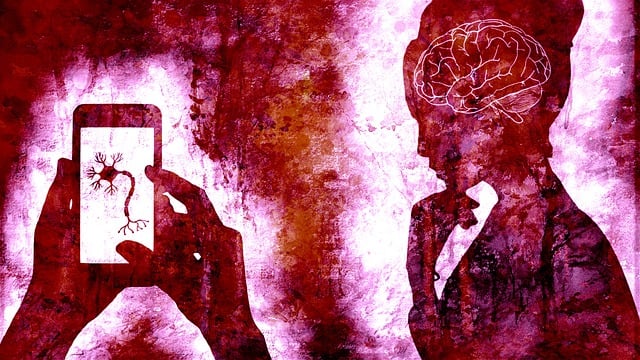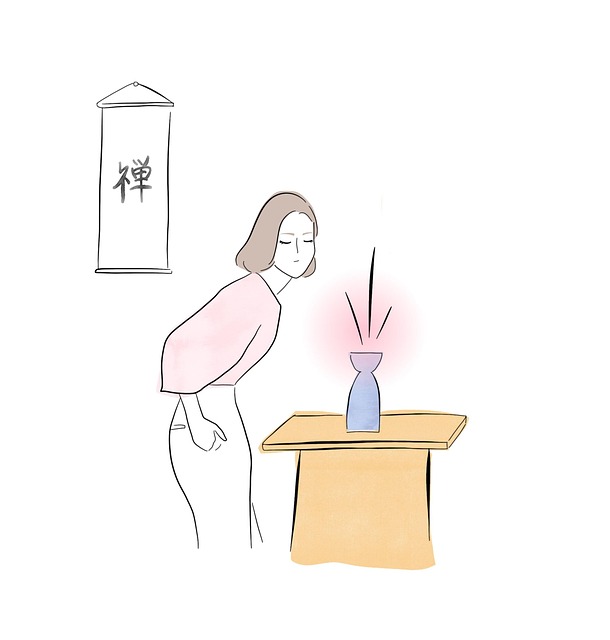The media's portrayal of mental illness, particularly anger management issues, is often inaccurate and stereotyped, contributing to public stigmatization. This negatively impacts individuals seeking specialized care like Aurora Anger Management Therapy (AAMT). There's a pressing need for authentic storytelling and Community Outreach Programs to educate and reduce stigma. AAMT challenges these stereotypes by offering evidence-based practices, trauma support, and healthy coping mechanisms, aiming to foster accurate and compassionate media portrayals of mental health. Creative platforms, such as podcasts, are crucial in promoting positive thinking and empathy. Effective media representation can dispel stigma, encourage understanding, and inspire viewers, ultimately driving positive change in societal attitudes and support systems for those facing mental health challenges.
In today’s digital age, media representation of mental illness significantly influences public perception. This article explores the current state of mental health depiction in media, highlighting challenges and stereotypes that perpetuate misinformed attitudes. We delve into the impact of these portrayals on individuals seeking support, particularly focusing on anger management issues. Through a case study of Aurora Anger Management Therapy, we propose strategies to enhance accurate representation, fostering positive change and reducing stigma associated with mental illness.
- Understanding Mental Illness Representation in Media: The Current State
- The Impact of Stereotyped Portrayals: Aurora Anger Management Therapy Perspective
- Challenges Facing Accurate Mental Health Depictions
- Strategies for Improving Media Portrayal: A Case for Aurora Anger Management Therapy
- Empowering Positive Change through Ethical Media Representation
Understanding Mental Illness Representation in Media: The Current State

The current state of mental illness representation in media is a complex landscape that often perpetuates stereotypes or falls into silence. Media platforms have the power to shape societal perceptions, yet their portrayal of mental health issues is frequently characterized by inconsistencies and inaccuracies. This lack of adequate representation has significant implications, especially for individuals struggling with conditions like Aurora Anger Management Therapy, which requires specialized care and understanding.
Many media narratives either depict mental illness as a mere plot device or present overly simplified and sensationalized versions, failing to capture the nuances and diversity of real-life experiences. As a result, viewers may gain misinformed ideas about various disorders, leading to further stigmatization. To address this challenge, there is a growing need for more authentic and empathetic storytelling, along with the implementation of Community Outreach Program initiatives that promote mental wellness through education and open dialogue.
The Impact of Stereotyped Portrayals: Aurora Anger Management Therapy Perspective

The media’s portrayal of mental illness often perpetuates harmful stereotypes that can significantly impact how society understands and treats individuals struggling with their emotional well-being. When mental health conditions are depicted in a stereotypical light, it may lead to further stigmatization and misunderstanding. For instance, angery characters are frequently portrayed as unreasonably violent or aggressive without exploring the underlying causes of their frustration, such as trauma or stress management issues. This kind of representation fails to reflect the complexity of human emotions and can discourage those affected from seeking help.
Aurora Anger Management Therapy offers a contrasting perspective by focusing on evidence-based techniques for emotional well-being promotion. We recognize that anger is often a symptom of deeper issues, including past traumas or chronic stress. Our approach involves providing trauma support services and teaching individuals healthy coping mechanisms to manage their anger constructively. By challenging stereotypical portrayals, we aim to create a more accurate and compassionate understanding of mental illness in media, fostering an environment where those facing these challenges feel supported and encouraged to seek professional help.
Challenges Facing Accurate Mental Health Depictions

The media plays a significant role in shaping public perception, and inaccurate representations of mental illness can lead to harmful stereotypes and stigmatization. One of the primary challenges is the lack of depth and nuance in portrayals, often reducing complex disorders to simplistic and exaggerated narratives. This issue is further exacerbated by the absence of diverse perspectives, with many media productions featuring limited ethnic or cultural diversity among characters struggling with mental health issues. As a result, viewers may gain misinformed ideas about what mental illness truly looks like and where to seek help.
Moreover, the pressure to create captivating storylines can sometimes overshadow the importance of accuracy. Media outlets might prioritize dramatic effects over realistic depictions, leading to exaggerated symptoms or misleading character arcs. For instance, portraying anger as an unmanageable, uncontrollable force without exploring underlying triggers or offering potential coping strategies, such as those available through Aurora Anger Management Therapy, can be detrimental. Encouraging positive thinking and empathy-building strategies through creative platforms like a Mental Wellness Podcast Series Production is essential to counteract these challenges and foster a more understanding society.
Strategies for Improving Media Portrayal: A Case for Aurora Anger Management Therapy

Media representation of mental illness plays a pivotal role in shaping public perception and understanding. To challenge stereotypes and promote accurate portrayal, several strategies can be implemented. One such innovative approach is Aurora Anger Management Therapy, which focuses on addressing anger-related issues effectively. By integrating this therapy into media narratives, we can present more nuanced and realistic portrayals of individuals grappling with mental health challenges.
Aurora Anger Management Therapy offers a holistic framework for burnout prevention among healthcare providers as well, emphasizing the importance of stress reduction methods and inner strength development. This dual benefit underscores its potential to foster positive change in both media representation and mental health support systems. Through collaborative efforts between therapists, media creators, and healthcare professionals, we can collectively ensure that stories about mental illness are not only accurate but also empowering.
Empowering Positive Change through Ethical Media Representation

Media has a profound impact on shaping societal perceptions, especially when it comes to mental health. Positive representation can be a powerful tool to combat stigma and promote understanding. By presenting realistic portrayals of individuals with mental illnesses, media can contribute to a more inclusive and supportive society. This shift in narrative encourages empathy and fosters an environment where people feel comfortable seeking help.
For instance, programs featuring characters undergoing Aurora Anger Management Therapy or similar initiatives can showcase effective treatment methods, highlighting the importance of emotional regulation, stress management, and social skills training. Such representations offer valuable insights into the journey towards recovery, inspiring viewers and challenging stereotypes. Ethical media representation has the potential to drive meaningful change, ensuring that those facing mental health challenges are supported and empowered.
In conclusion, improving mental illness representation in media is paramount for fostering understanding and reducing stigma. The current landscape, while showing progress, still faces challenges in accurately depicting diverse mental health conditions. Aurora Anger Management Therapy offers a compelling strategy to enhance portrayals by promoting nuanced, empathetic, and ethically sound representations. By adopting evidence-based approaches like those offered by Aurora, the media industry can play a pivotal role in empowering positive change and fostering a more inclusive society.













